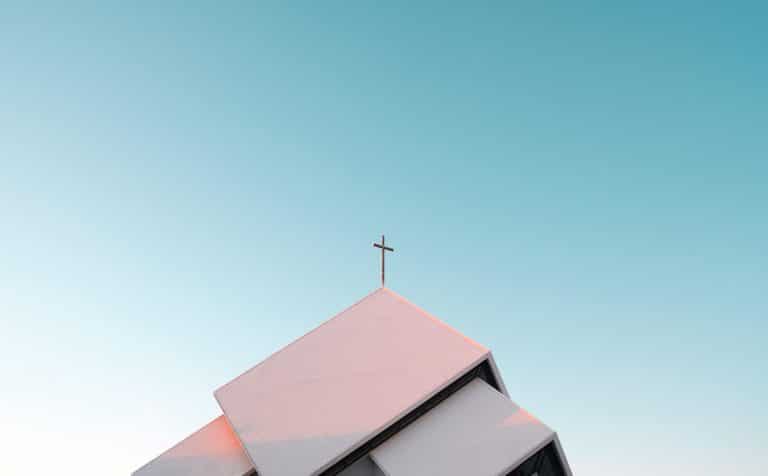A closer look at Exodus Cry, the shady group behind Pornhub’s recent purge

Less than a few days ago, Pornhub announced that it had removed more than 9 million videos from its platform after it was revealed that a large number of them featured underaged and sex-trafficked subjects. People rejoiced—for obvious good reasons—but one crucial part of the news slipped under everyone’s radar. Exodus Cry, the group behind this crusade against Pornhub, was praised by many for its relentless work. What many seemed to miss is that the same group is currently raising money off the controversy while promoting anti-sex work and anti-LGBTQ views. Here’s why we decided to take a closer look at the shady Exodus Cry.
To give you a bit more context about the whole series of events, the story really blew up after The New York Times published a controversial opinion piece written by columnist Nicholas Kristof and titled The Children of Pornhub. The column highlighted several victims of statutory rape and their experiences with the platform, calling for “search engines, banks or credit card companies” to demonetise it—and to some extent, it worked.
The piece prompted Mastercard and Visa to investigate Pornhub for illegal material, and subsequently to cut ties with it, along with MindGeek’s other properties including Brazzers, Redtube, and XTube. A fair bit of Kristof’s case against Pornhub rested on the work of an activist campaign called #Traffickinghub and the petition it had launched in July 2020, which had already at the time made headlines.
Traffickinghub is led by activist Laila Mickelwait and powered by the anti-trafficking organisation Exodus Cry and is described on its website as “a non-religious, non-partisan effort to hold the largest porn website in the world accountable for enabling and profiting off of the mass sex-trafficking and exploitation of women and minors.” So far so good, right?
While Traffickinghub claims that it has no ties to any religious groups, it has a clear link to Exodus Cry, where Mickelwait works as the nonprofit’s Director of Abolition. Online, Exodus Cry is known as a highly religious group with far-right ties that aims to abolish the commercial sex industry entirely.
The Traffickinghub campaign was also co-sponsored by the National Center on Sexual Exploitation (NCOSE), which was formerly known as Morality in Media and once the “nation’s loudest voice against adult pornography.”
After acknowledging the severity of the accusations, even Pornhub pointed the finger at Exodus Cry and NCOSE and highlighted the fact that both groups have long campaigned against sex content of all kinds. In its statement, Pornhub said it is “being targeted not because of our policies and how we compare to our peers, but because we are an adult content platform,” adding that “these are organizations dedicated to abolishing pornography, banning material they claim is obscene, and shutting down commercial sex work.”
And it gets worse. Shortly after Kristof’s article was published, Mickelwait started a GoFundMe fundraiser to raise money for one of the women the journalist interviewed. According to The Daily Beast, the page, which cited the article, set a $20,000 goal at first, promising that “100% of all funds received will go directly to victims.”
Three days later, the goal was changed to $50,000 and the previous promise was edited along with it, now reading: “All funds received will go directly to support victims and will be managed and disbursed by The Rebecca Bender Initiative, a leading US organization dedicated to assisting survivors of commercial sexual exploitation and trafficking.” Guess who sits on the board of Exodus Cry? Rebecca Bender.
Today, more than $93,000 have been donated to the fundraiser, and the page has been edited once more to include an organisation called Elevate Academy, which is also run by Rebecca Bender, and is a partner of Exodus Cry.
Meanwhile in 2018, on its website, Exodus Cry used to say that it was “birthed out of prayer” in Missouri, where it had previously been closely linked to the International House of Prayer, Kansas City (IHOPKC), a growing charismatic Christian movement whose founder, Mike Bickle, has said that homosexuality “opens the door to the demonic realm.”
American filmmaker and CEO and founder of Exodus Cry Benjamin Nolot once gave a talk at IHOPKC about “purity in a pornified world,” in which he referenced “the lust of Satan” and warned: “We are in a dark hour of sexual turbulence across the planet, but God has promised he will have a bride without spot or blemish.”
According to OpenDemocracy, Nolot defined “sexual immorality” as “all sexual activity outside of the marriage covenant between one man and one woman” and said that ‘toxic sexuality’ was to blame for abortion, teen pregnancy, and the “implosion of the nuclear family” along with rape and sex trafficking.
Nolot has also spoken at events organised by the Catholic anti-LGBT hate group C-Fam and the Bethel School of Supernatural Ministry (BSSM), whose co-founders wrote a book on “sexual purity” and called homosexuality “the ultimate identity crisis.”
My point is not to defend Pornhub in any way, but to shed light on the lack of transparency in this whole series of events and offer more information on Exodus Cry and what it truly stands for. Yes, the crackdown was overdue. But when you look more closely at it, you might also see where this initiative came from in the first place—from evangelistic, anti-LGBT, sex work abolitionists.





